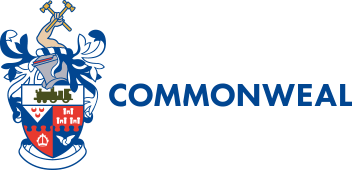
Sociology
Head of Department/Faculty
Mrs J Plummer
jplummer@commonweal.co.uk
Overview
Overview
Sociology is the study of how society works and how we experience life. Sociology tries to understand patterns of inequality and conflict which are features in nearly all societies. This GCSE specification provides students with the opportunity to study the sociology of families, education, crime and deviance and social stratification.
The course is designed to enable students to develop their understanding of complex social structures, empirical investigation and constructing balanced arguments, as well strengthening their analytical and research skills.
By studying sociology, students will develop transferable skills including how to:
- investigate facts and make deductions
- develop opinions and new ideas on social issues
- analyse and better understand the social world.
Do you enjoy subjects that allow you to discuss and debate topical and controversial issues?
Are you naturally inquisitive about the everyday world in which you live?
Then sociology is for you.
Top Tips to do well in sociology
-
Use sociological language
Learn the key terms and definitions
-
Learn key sociologists and their theories
-
Make sure you understand what all the different command words mean.
Compare, contrast, describe, explain, etc.
-
Apply your knowledge to real life examples from a variety of different media, magazines, film and TV, articles, relevant documentaries, web pages, social media
-
Watch & read the news; local and national
The Curriculum
Link to AQA website: https://filestore.aqa.org.uk/resources/sociology/specifications/AQA-8192-SP-2017.PDF
Sociology GCSE is delivered in 5 one-hour lessons a fortnight. To study sociology at GCSE, students have to choose it as one of their four options.
Content
You will study the following topics:
- The sociological approach – what is sociology, what are the key theories and who are the key thinkers?
- Social structures, social processes and social issues – How is society structured? What are the most important issues in society right now?
- Families – what is the role of the family in society? How have family roles changed over time? Is the family still relevant in the modern world? What are the consequences of a divorce?
- Education – what is the role of education? How does it link to capitalism? How do teacher expectations effect student outcome?
- Crime and deviance – what do we really know about crime? What is a subculture? What is the best way to control society?
- Social stratification – how is society divided into different class groupings? How does that effect life chances? Who has the real power in our society?
- Sociological research methods – How do we know any of these things? Learn about the way sociologists find things out. Think about how useful different methods are.
Skills
Sociology develops many skills which will be useful for your future, this includes using information and evidence from different sources, analysing and evaluating ideas and putting together arguments and debates in order to make judgements and draw conclusions.
Independent Learning
Knowledge tests. To learn key terminology and sociological theories
Mastery and improvements
Exam skills/exam style questions
Students are encouraged to read around the topic areas
Enrichment and trip possibilities
Opportunity to hear outside speakers
Sociology conferences
Assessment
There are two exams, each is 1 hour 45 mins long. They are each worth 50%. There is a range of multiple choice, short answer and longer answer questions on each paper.
Where can it lead?
Sociology is a subject that opens many doors, it will help prepare you for Sociology A level, and other social science subject A levels such as Psychology, Law and Politics.
Sociology is about understanding people, and understanding society. Some sociologists work conducting research, and others are government advisors. However, it is a great option for any career where you are working with people e.g. teaching, the police force, social worker, international aid worker, lawyer or doctor.
Teachers in the Faculty
Mrs C O’Brien – cobrien@commonweal.co.uk
Mrs R Hampshire – rhampshire@commonweal.co.uk
Miss S Brassington – sbrassington@commonweal.co.uk